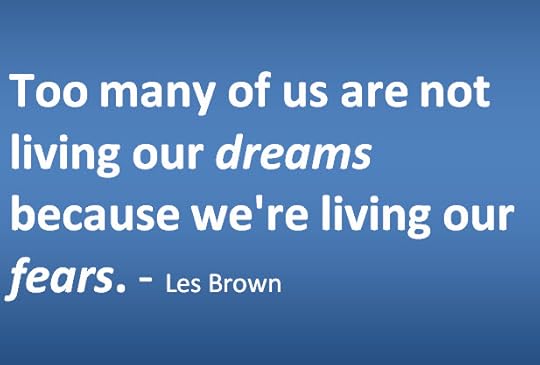Edward Lewellen's Blog, page 13
September 7, 2015
Do These 5 Things to make Sure Your Salespeople Succeed
Would you call this a Up-to-Date?
A few weeks ago I wrote a post titled, Do These 5 Things to make Sure Your Salespeople Fail. So, it makes sense that I offer a solution in the form of ways to ensure the success of your salespeople, right? Before I do, I want to reiterate what I said as I closed the previous post: What so many people and companies are training today is information that was applicable in the 1980’s and 1990’s. Yes, they may add information and verbiage to attempt to bring it up-to-date and verbiage to make it seem to ‘fit’ into the world of today. Think about this; would you find it acceptable to take a corded phone, then tape a calculator, an address book, a laptop computer, and a few other things to it and call it a Smartphone? I didn’t think so…
Here are the 5 things to do to make sure your salespeople succeed:
#5 – Understand the “Why” of each salesperson.
In 2009, Simon Sinek became famous for his TED Talk How Great Leaders Inspire Action and you can follow this link to the video by clicking here. Each person has their own reason for “showing up” each day beyond just physically. They have their reasons for “showing up” mentally, too. A good Sales Manager will understand some reasons her/his sales team has in common. A great Sales Manager will understand each person on her/his team’s reasons. I know of companies that still give Rolex watches as an incentive. That’s good for some, but, what if your people are motivated by other things, such as, a schedule they have more flexibility and control over and altruism for themselves and from their company? Does this make the work of the Sales Manager more difficult? Sure. And, if they want to be great instead of just good, then the extra work is well worth it, not to mention the impact it has on their personal compensation.
#4 – Communication: One size doesn’t fit all
The three primary communication modalities are: Visual (65%), Auditory (25%), and Kinesthetic (10%). (If you would like to learn more about these and how to determine which ones apply to your salespeople, please let me know and I’m happy to share that information with you.) Here’s what’s important for this post; you can think and believe you have communicated what you want to your people and be very wrong. For instance, a person that has Visual as their primary modality talk fast, uses words that communicate “seeing”, and use a lot of gestures. A person whose primary modality is Kinesthetic hesitates before speaking and speaks slowly because they filter their thoughts through their feelings first to how each and every thought “feels” to them. If you, as the Sales Manager, belong to the Visual group and you have a salesperson that belongs to the Kinesthetic group, then you can’t expect them to keep up with your speed of processing. You have to take the high road and slow down for them. Another area of communication is the channel, or medium, people prefer to communicate within. Studies have shown that young African-Americans professionals distrust email and prefer in-person contact. Young Asian professionals prefer email to face-to-face contact. Implementing these two areas of communication will have an immediate and powerful impact upon your communication and your sales!
#3 – Less is more
In their book, The Power of Full Engagement, the authors share the power and impact of taking just a few minutes to totally disengage from work every two hours has on productivity. As a Sales Manager, you want your salespeople to perform at a high level, right? That’s why you have incentive programs, bonuses, trips, etc. What if you had a way to increase productivity that cost you and your company nothing and it paid high dividends? Is that something you would be interested in? Of course! The secret is having your people totally and completely have times of disengagement from work. When they go home total and complete disengagement. When they go to a non-working lunch, total and complete disengagement. And, every two hours, at least five minutes of total and complete disengagement. Your productivity during their times of engagement will soar!
#2 – Different training
I’ve taken many of the most popular sales training programs that have been available all the way from the 80’s through a course I took in 2012. Of all the training I’ve taken only one course was somewhat unique. A gentleman skipped over all the usual “steps” of sales and went to the real essence of sales, but only at a cursory level. He used a little Neuro-Linguistic Programming (NLP) and even a bit of overt hypnosis. If you have ever listened to or watched the people who are considered the “Top” sales gurus, you have experienced the use of hypnosis in sales. I recently watched a couple of minutes of a Brian Tracy video and it amazes me to hear the overt hypnotic rhythm he uses. In fact, Tracy over used the hypnotic rhythm to the point that the ability for it to reach the unconscious was removed. The conscious mind picks up on the variance from normal talking and says, “Hey, what’s this guy doing talking like that?” Tony Robbins uses NLP overtly with audiences and with his one-on-one with clients I’ve been told that Robbins uses Ericksonian hypnosis. Unfortunately, my experience is that the “sales gurus” consistently fall into the trap of the 4-step, 5-step, 8-step, or whatever-step process, rather than teaching the things that are most important to sales; intent, real relationship-building, and deep structure communication. Many are still holding onto the 80’s way of believing, thinking, and behaving.
#1 – Neuropathological Remodeling
Yes, this is the #1 most important and most potent way to catapult your salespeople to success! What is Neuropathological Remodeling? Think about the last time when you remodeled a room, a house, a car, or anything that had become worn-out and you wanted to bring it up-to-date. Think about the software on your computer for which you receive regular updates. What would your software be like if it wasn’t updated regularly? It would run slow. It would have “bugs” in it, maybe even malware. It would be unable to give you the results you want immediately, if at all. Now, imagine being able to remodel your salespeople’s thinking. What would it be like to remove all the old and worn-out negative history they have been accumulating that has been causing call-reluctance and other negative behaviors that keep them from making sales? What would it be like for all of your salespeople to get the latest “updates” to their beliefs, thoughts, and behaviors to match those of the Top 20% and get the same revenue-generating results of the Top 20%? What if they could learn new information at an accelerated rate? What if they could remain calm and focused when sitting with clients and prospects with the ability to recall information quickly and accurately? Do you think Neuropathological Remodeling would be helpful to Sales Managers? I do, too!
If you are a Sales Manager or a Salesperson and you want to increase your sales significantly and succeed beyond what you believe you can, then a brief phone call is what you need to be making to me today to find out more.
Dr. Edward Lewellen is a Master Executive Coach, leadership and sales expert, and keynote speaker for some of the largest global organizations.
Author of The 90-Second Mind Manager
972.900.9207
Ed@Trans-Think.com
August 31, 2015
Choose How You’ll Change!
Change is inevitable. While you read this post something around you is changing that you’re not aware of…yet. Many people want to believe they have control in their life and control is mostly an illusion. Think about it. Whether it’s something as simple as your plan of what you’ll eat for lunch or as complex as a 5-year business strategy for a 10,000 employee company, your limits of control are very finite. Every moment brings a variable over which you have no control.
So, what’s a person or an organization to do? I like what Tony Robbins says about the 6 Human Needs when he says that we have this need for stability and variety at the same time. How do we coalesce these needs? The first step is understanding that we humans are a dichotomy of our Core Identity and the Roles we play. Your Core Identity is who you are when you strip off all the roles you play in life. This is your touchstone if, and only if, you know your Core Identity. This is where your stability derives from. In working with people, I find that the vast majority don’t know who they really are in the Core Identity. They live so much in their roles that they believe that’s who they are.
They are a parent.
They are a spouse.
They are a salesperson.
They are a golfer.
They are an executive.
Here’s the problem with believing we are those things; roles are fluid and very changeable. Because roles are fluid and changeable, it causes people frustration and dissatisfaction when they expect to have stability in them. For example, you’re at your job and you get settled into a job, a position, with your company. After a while, you believe that you become that job. You identify yourself with it. You even say something like, “I am a ______”. Then, one day, you’re told that you are being given a new assignment and job. Your reaction to the change is probably one of fear and anxiety. Why? Because you have become the job you were doing. You identified with it so strongly and deeply that you are that.
Please consider how different that scenario would be if you knew who you are in your Core Identity. First, your self-talk would be like this, “I am loving, loyal, fun, and kind. That’s who I am. In the role I play as a ______, my behaviors are (whatever the role requires).” So, when you’re told your role is changing, you only see it as a change in your behaviors, not an unsettling feeling that who you are is being required to change. Do you see how that is a totally different thought process and sensation you have now? This is how you can have stability and variety at the same time. Your Core Identity maintains the stability it needs while your roles experience the variety they need.
This the key element to choosing how you’ll change. In my newest book, The 90-Second Mind Manager, I share this information and so much more that will give you the ability to take control of your beliefs, thoughts, and behaviors so that you can create the life you really want. I had the opportunity to share much of the book’s content, including >The 90-Second Mind Manager Process, with about 100 women leaders at Bell Helicopter’s Global Headquarters on 8/27/15. The feedback has been phenomenal! I want to take this opportunity to thank Bell Helicopter for the opportunity to present.
I also want to thank Dr. Ali Anani for writing the Forward for The 90-Second Mind Manager. Dr. Anani travels the world speaking to international organizations and has been rated in the Top 5% Creative People in the World, so what an honor to have him be a part of the success of my book!
If you would like your organization to understand The 90-Second Mind Manager Process and The 90-Second Mind Manager Global Initiative, please connect with me to set a time to get together soon!
Dr. Edward Lewellen is a Master Executive Coach, leadership and sales expert, and keynote speaker for some of the largest global organizations.
Author of The 90-Second Mind Manager
972.900.9207
Ed@Trans-Think.com
August 30, 2015
Anatomy of Losing Your Job: Take Control!
In 2007, I lost my job due to politics in upper management. A company whose sales I had taken from 50% below quota to 500% over quota in just six months became embroiled in the politics of who was going to claim credit for the turnaround of the sales force. Because my agreement with the CEO was that I would receive a percentage of sales growth as part of my compensation package, it was decided that the growth in revenue hadn’t come from my efforts over the previous six months. It was, in the view of my boss, a result of the years she had invested in the sales team that had finally come to fruition. It just happened to coincide with my arrival in the company. Not only did I not receive my bonus for the growth, I was unceremoniously escorted out the door. 2007 was a poor time to become unemployed. I remained unemployed for two years. I understand what people experience in long-term unemployment.
The Grieving Process
Losing a job can be much like facing the death of a loved one. The first step is Denial. Many people experience a numb feeling mentally, emotionally, even physically. This may last a few minutes or for weeks. In my case, I jumped over this phase right into the next…
Anger! Since I was owed several thousand dollars and it was clearly office politics that was the cause, I became angry and immediately sought help from an attorney. Unfortunately, it was going to cost me more to litigate than what I was owed. You may have experienced anger in your job loss, too. You may have been angry at the company, your boss, or your co-workers. You may even have been angry with people who had nothing to do with you losing your job, like your family and friends. You might even go into “Fight” mode and think and say things, like, “I’ll show them!”, “This is one door closed so another can open!”, or “God is testing me out to see how strong my faith is!” Once the anger and verbose words subside, the next stage is:
You feel saddened and depressed. You ask questions like:
• “Why is this happening to me?”
• “Why wasn’t I good enough?”
• “What’s wrong with me?”
• “What is going to happen to me now?”
Left unchecked, this type of thinking can lead to a downward spiral. You may have become listless and nothing makes you happy. Any hint of happiness is dismissed as undeserved. Your relationships became disconnected and unfulfilling. Nothing matters. Once you began to rise out of this state and stage then comes…
Acceptance of the situation. Like when you were angry, your strong feelings of getting things back to normal are there, but in a more balanced way. However, what if you have been unemployed for a long time, 6 months, or more? As I mentioned earlier, I was unemployed for two years! Here’s what I’ve seen happen to so many people who have been unemployed for three months, or more:
• You’re sitting at the computer applying for jobs and you begin to wonder, “What good is this doing me?” A wave of depression flows over you and you weep.
• You aren’t getting any interviews after applying over and over again. You wonder, “What’s the use?” and you feel your energy drain. You feel like going to bed and just hope to wake up and discover that you’re in a bad dream.
• You go on interviews and you get the sense at each successive one that you aren’t going to get the job. You prepare to send your follow-up email or card and you find it hard to write the words in a way that would convince the interviewer that you’re the right person for the job. How could you, you’re not convinced you even have a chance.
So, if you identify with this post, what can you do differently to change the most important part of the process of successfully finding a job? Others would have you believe that your resume and a host of other things they want to sell you are the things that will get you your next job. I’m sure those things have some impact.
What I have seen that creates the greatest benefit is changing the subconscious associations people have when looking for a new employer. If you’ve read my post I Give Up and others, you already know that I work with people and the mind-loops or neural pathways they create in all situations in life. I do what some call Neuropathological Remodeling. That’s a fancy way of saying that I help people change the way they think at the subconscious level. More than all the other things that will affect your job search, it is the beliefs and thoughts processing in your subconscious that will determine how long you’re looking for your next job.
I’ll give you an example of how this works through a person I recently helped. This person told me they had been unemployed for a year, had $500 in the bank and $5,000 in bills coming due, and no job prospects. Their body language was like this; their head slightly bent down; shoulders rolled forward; their face was drawn in and their brow deeply furrowed. Their voice was weak; their tonality was high from stress, and their words were all in “Victim” and “Defeated” mode. I spent about 10 minutes working with this person and did a bit of “remodeling” in their subconscious. Like when you remodel a room or a house, they were hardly recognizable! The person was standing tall with shoulders back, head held high, a skip in their step, strength in their voice and the presence of real confidence in their language! That was just a few days ago, so I don’t know the outcome yet. Here’s what I have every confidence in, though; this person will now succeed to a much greater degree than they would have had I not helped them. How do I know? It worked on me and it has worked on scores of my clients!
Consider investing a few minutes to learn where your points of personal power exist:
Dr. Edward Lewellen is a Master Executive Coach, leadership and sales expert, and keynote speaker for some of the largest global organizations.
Author of The 90-Second Mind Manager
972.900.9207
Ed@Trans-Think.com
August 24, 2015
Overcome the Fear of Rejection NOW!
Fear of rejection is most likely the largest reason salespeople aren’t successful as they could be, or not successful at all. What most companies are missing from their sales training programs is a key element Dr. Edward Lewellen has developed just for salespeople. For instance, when a software program is out-of-date and incapable of performing the required work, does a software programmer go into the program and write the code in bigger letters and symbols, thinking that will make it work better? Do they press harder on the keys of the keyboard, expecting that to make the program work? Do they threaten the software that, if it doesn’t start working right away, that they’ll uninstall it? No, none of those things make any sense, even to those of us that have a minimal understanding of programming.
Yet, what do most sales managers and sales trainers do when their people are under-performing? They spend more time training on the same information as the salespeople have already attended over and over, as if to make the information larger. They put more pressure on them to perform, like putting more pressure on the keys of the keyboard. They even threaten them with termination, “uninstalling” them, as it were.
All of that makes as much sense as if I were to say, “I’m writing slow because I know you can’t read fast”!
There is a better, easier, faster way to get exponential results from salespeople that your salespeople will absolutely enjoy! Watch the video below to gain more insights:
To get detailed information on Dr. Lewellen’s unique methodology and process, contact him today at 972.900.9207 or Ed@Trans-Think.com.
Dr. Edward Lewellen is a Master Executive Coach, leadership and sales expert, and keynote speaker for some of the largest global organizations.
Author of The 90-Second Mind Manager
972.900.9207
Ed@Trans-Think.com
Somebody’s Watching You!
You’ve had that experience when you were so sure someone was watching you that you felt pressured to turn around to see if there was. One Neuroscientist calls that the “underlying element” that connects us all. Learn more as you watch the following video:
Dr. Edward Lewellen is a Master Executive Coach, leadership and sales expert, and keynote speaker for some of the largest global organizations.
Author of The 90-Second Mind Manager
972.900.9207
Ed@Trans-Think.com
Do These 5 Things to Make Sure Your Salespeople Fail
You read a lot about how to help your salespeople succeed and most of it is rehashed information from 30 years ago with some updated terminology. If so many people know how to help you to help your salespeople succeed, they why isn’t it working? Let’s take a walk together though the top 5 things that, if you do them, will ensure your salespeople’s failure. By knowing these it will help you stop the ‘bleeding’ of people, time, and financial resources by stopping these behaviors. Then you can go to work on helping them succeed.
#5 – Provide no, or very little, personal interaction
No one can perform at a high and sustained level without personal interaction. The human psyche and emotions have needs that must be met which only personal interaction can fill. Even the most battle-hardened salesperson needs to know they are significant and that their contribution is valued. With little or no positive interaction, your people will either fail or go to your competitor that values them and will invest time with them.
#4 – Provide no direction
New salespeople are sometimes told to “sink or swim” after some initial training. Seasoned salespeople are thought to know what they need to do. Sales Managers with these attitudes are taking the easy way out for themselves and throwing all of the responsibility and accountability on the salespeople. This will guarantee 80%+ of your salespeople will under-perform or fail.
#3 – Rework the compensation plan
I’ve seen it and you’ve seen it. A company or a sales manager decide they need more profit or that the salespeople need to work harder to make a living, because it’s “too easy” for them to succeed. Success is rewarded with punishment. Sales decrease and people leave and new salespeople are hired under the new plan. But, they never seem to achieve the success of the original compensation plan. And, a revolving door has started. At an average cost of $20,000 to hire a new salesperson (this is just to get them in the door and without any training), was it really a good idea to change the compensation plan to “save money”?
#2 – Embarrassment, harassment, and negligence
People have innate abilities to deal with embarrassment, harassment, and negligence. It’s called “Avoidance”. They quit performing and leave. Many sales managers that use these tactics are following the example of bosses they’ve had or of their parents. People can only do what they know, so they use these methods to “motivate” under-performers. It would be less painful for all if they just terminated them. If people who are embarrassed, harassed, and neglected aren’t terminated, they’ll soon leave anyway.
#1 – Threat of termination
When a person’s livelihood is threatened, primeval instincts take over. People go into “Survival Mode”. The brain shuts down all the creativity, excitement, motivation, enthusiasm, etc. All the traits the sales manager wanted to bring to the fore have been totally squashed. The moment the threat is stated, in their mind, the salesperson has already reworked their resume and begun deciding where to start sending it. Oh, and if they do stay for a while, it’s only their body that’s present. They have already quit mentally.
Stop using the above tactics and you’ll discover that sales will increase by virtue of the change in management style. And, you want more, right? If you’re a sales manager that wants to lead of top-performers, then you need a formula for success that meets the needs of 2015 and beyond, not one that’s stuck somewhere in the past. Contact me if you would like to know more.
Dr. Edward Lewellen is a Master Executive Coach, leadership and sales expert, and keynote speaker for some of the largest global organizations.
Author of The 90-Second Mind Manager
972.900.9207
Ed@Trans-Think.com
August 23, 2015
What Causes You to Get ‘Stuck’ in Life?
Are you stuck in a job? In a relationship? In life? Discover how you can start moving in FORWARD MOTION!
Dr. Edward Lewellen is a Master Executive Coach, leadership and sales expert, and keynote speaker for some of the largest global organizations.
Author of The 90-Second Mind Manager
972.900.9207
Ed@Trans-Think.com
The Meanings We Give to Life
Whether it’s stubbing our toe, losing a job, or going through divorce, the events we experience in life are the meanings we give them.
Dr. Edward Lewellen is a Master Executive Coach, leadership and sales expert, and keynote speaker for some of the largest global organizations.
Author of The 90-Second Mind Manager
972.900.9207
Ed@Trans-Think.com
August 20, 2015
Are You a Yugo or a Ferrari?
We all have a background, a past. We’ve heard the line that “It’s not what happens to you, it’s what how you react to it”. And, we’ve seen the stories of people who clawed their way out of circumstances where they were poor, abused, or disadvantaged in some way which causes most people to give up, yet, they pressed on to become victorious. We admire those people and the story they share with us. The stories inspire and motivate us…at least for a few moments. What story would be motivating in the long-term, sustainable? What tale is so inspirational and motivational that it causes you to leap out of bed each morning burning with passion and desire to make each day full of wonderment and success? Your story! The story you have lived and are living! You can be the greatest source of inspiration and strength to yourself because when you climb the insurmountable, when you scale the greatest obstacle, and when you cross the ‘sea’ full of dangerous waters, the experiences live within you and are part of who you are!
Take a few moments to watch the following video which will catapult you on your way to achieving your full potential and possibilities!
Dr. Edward Lewellen is a Master Executive Coach, leadership and sales expert, and keynote speaker for some of the largest global organizations.
Author of The 90-Second Mind Manager
972.900.9207
Ed@Trans-Think.com
Your Point of Personal Power X 3!
Not long ago, I wrote a post about Your Point of Personal Power. I’ve recently spoken to several groups on the topic and below you’ll find a video where I spoke at an event at the Ridglea Theater in Fort Worth, TX. This was a car show hosted by Empire Development Group and Danny Koker from the reality TV show Counting Cars was the Keynote Speaker. The video is less than 12 minutes and you’ll discover it worth you investment of time.
Dr. Edward Lewellen is a Master Executive Coach, leadership and sales expert, and keynote speaker for some of the largest global organizations.
Author of The 90-Second Mind Manager
972.900.9207
Ed@Trans-Think.com










